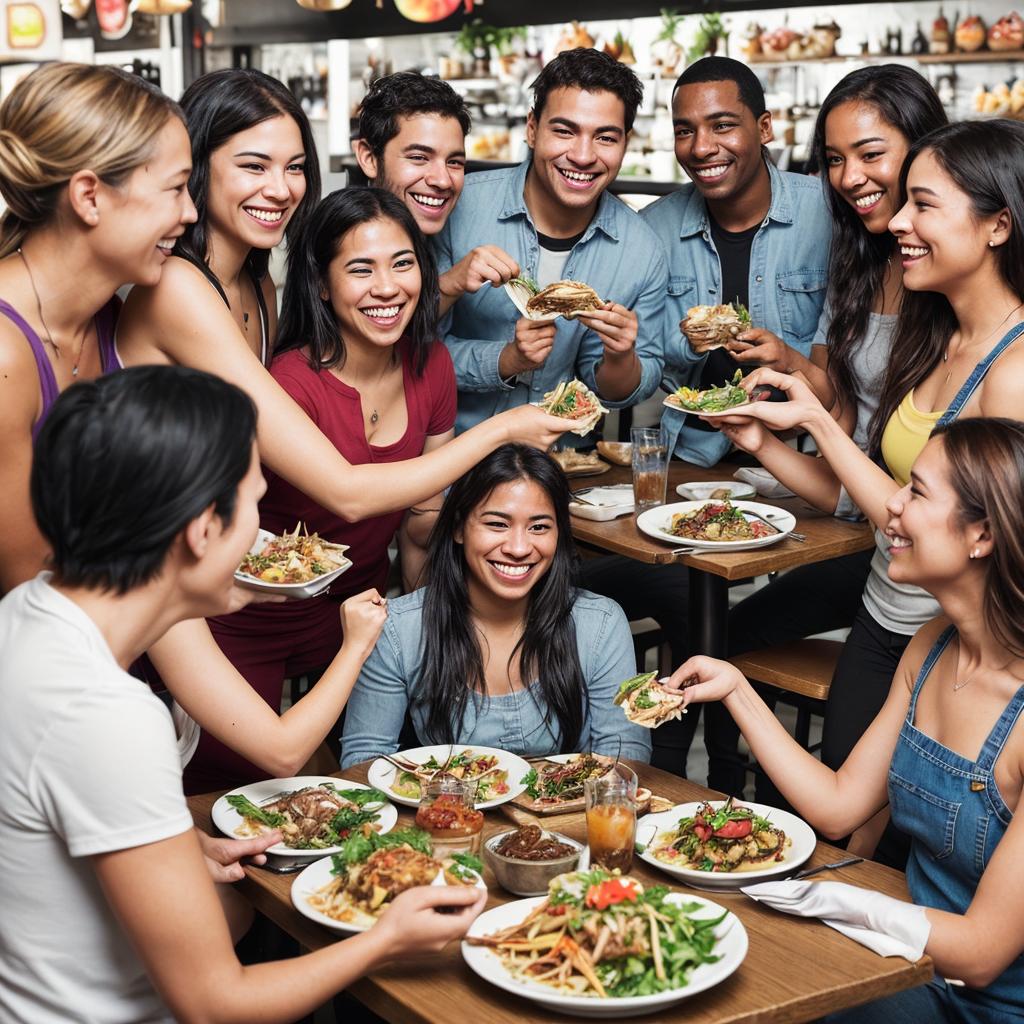8 Best Perspectives on Stigma Linked With Meal Coupons

Have you ever felt judged for using meal coupons?
It’s time to challenge the stigma surrounding these essential resources.
In this article, we explore the eight best perspectives on the stigma linked with meal coupons.
From debunking misconceptions to understanding the economic and psychological impact, we delve into the cultural and societal attitudes that perpetuate this stigma.
Let’s foster empathy, break down stereotypes, and promote inclusivity and support for meal coupon users.
Key Takeaways
- Misconceptions and stereotypes surround meal coupon users, including assumptions about their financial status and motivations for coupon usage.
- Meal coupons serve as an economic necessity for individuals in need and can benefit a diverse range of people, including low-income individuals, elderly individuals, veterans, and college students.
- The stigma and judgment associated with meal coupons can have negative psychological impacts, leading to feelings of shame, inferiority, and social isolation.
- Promoting inclusivity and support for meal coupon users requires addressing stigma through education and awareness campaigns, collaboration with the private sector, policy reforms, and open and honest conversations to foster understanding and empathy.
Misconceptions About Meal Coupon Users
Don’t assume that all meal coupon users are financially struggling or in need of assistance. While it’s true that some individuals who use meal coupons are facing economic challenges, it’s important to recognize that not all coupon users are in the same situation.
In fact, a significant portion of people who utilize meal coupons aren’t experiencing financial difficulties, but rather see these coupons as a way to save money and stretch their budgets.
Data-driven analysis reveals that a substantial number of individuals who use meal coupons come from diverse socioeconomic backgrounds. They may have stable jobs and regular incomes, but choose to take advantage of these coupons to reduce their expenses and allocate their resources more efficiently. This choice may be driven by a desire to save for other financial goals, such as paying off debt or building up savings.
Understanding these nuances is crucial in combating the stigma associated with meal coupon usage. By acknowledging that not all coupon users are facing economic hardship, we can challenge the assumption that these individuals are solely reliant on assistance programs. This shift in perception can help foster empathy and reduce the stigma surrounding meal coupon usage.
Transitioning into the subsequent section about the economic necessity of meal coupons, it’s important to consider the broader economic factors that contribute to the need for these coupons.
Economic Necessity of Meal Coupons
When considering the economic necessity of meal coupons, it becomes evident that these coupons play a crucial role in reducing food insecurity stigma. By providing individuals with a means to access affordable meals, meal coupons alleviate financial strain and contribute to a more stable food supply.
Moreover, they have a significant impact on self-esteem, allowing individuals to maintain their dignity while meeting their basic nutritional needs.
Additionally, expanding the accessibility of meal coupons can further address the economic necessity and ensure that more individuals have access to affordable and nutritious meals.
Reducing Food Insecurity Stigma
To reduce the stigma associated with food insecurity, meal coupons serve as an economic necessity for individuals in need. These coupons not only provide access to essential food items but also help in reducing the stigma that comes with using them. By using meal coupons, individuals can maintain their dignity and privacy while meeting their basic needs.
To better understand the impact of meal coupons in reducing food insecurity stigma, let’s take a look at the following table:
| Benefits of Meal Coupons | Impact on Stigma Reduction |
|---|---|
| Provides access to food | Reduces the visibility of food insecurity |
| Maintains privacy and dignity | Allows individuals to blend in and avoid judgment |
| Normalizes the use of coupons | Decreases the association of poverty with stigma |
| Promotes self-sufficiency | Helps individuals feel empowered and independent |
| Creates a sense of community | Fosters support and understanding among coupon users |
Impact on Self-Esteem
Using meal coupons is an economic necessity that can significantly impact your self-esteem. When you rely on meal coupons to provide for yourself and your family, it can be difficult to shake off the feeling of shame or embarrassment that often accompanies their use. Here are four key ways in which the economic necessity of meal coupons can affect your self-esteem:
- Stigma and judgment: The use of meal coupons may subject you to judgment from others, leading to feelings of inferiority and shame.
- Sense of dependency: Relying on meal coupons can make you feel dependent on the generosity of others, potentially undermining your sense of self-worth and independence.
- Stereotyping: Society’s perception of individuals using meal coupons can perpetuate stereotypes and negative assumptions about their financial situation, further eroding self-esteem.
- Internalized shame: The economic necessity of meal coupons may lead to internalized shame, making it difficult to feel deserving of basic necessities and hindering your ability to build a positive self-image.
It is important to recognize the impact of meal coupons on self-esteem and work towards creating a more inclusive society that supports individuals in need without stigmatizing them.
Expanding Coupon Accessibility
Expanding the accessibility of meal coupons is crucial for individuals who rely on them as an economic necessity, as it allows for greater empowerment and autonomy in meeting their basic needs. Meal coupons serve as a lifeline for many people who struggle to afford regular meals, providing them with a means to access nutritious food. However, the current limitations in coupon accessibility pose significant challenges for these individuals, limiting their ability to fully benefit from this resource.
To understand the importance of expanding coupon accessibility, let’s take a look at the following table:
| Challenges Faced | Benefits of Expanded Accessibility |
|---|---|
| Limited availability of coupons | Increased access to nutritious food |
| Stigma associated with coupon usage | Enhanced financial stability |
| Difficulty in obtaining and redeeming coupons | Improved overall well-being |
| Lack of awareness about coupon programs | Greater social inclusion and participation |
As the table illustrates, expanding coupon accessibility can address various challenges faced by individuals who rely on meal coupons. It not only ensures their basic needs are met, but also helps to alleviate the stigma associated with coupon usage. Moreover, by providing easier access to coupons, individuals can experience improved financial stability and overall well-being.
Psychological Impact of Meal Coupon Stigma
You may experience psychological distress due to the stigma associated with using meal coupons. The negative perceptions surrounding the use of meal coupons can have a profound impact on your mental well-being. Here are four key ways in which the psychological impact of meal coupon stigma can manifest:
- Feelings of shame and embarrassment: The stigma attached to using meal coupons can make you feel ashamed and embarrassed about your financial situation. This can lead to a decrease in self-esteem and a sense of worthlessness.
- Isolation and social exclusion: The fear of judgment from others may cause you to withdraw socially, leading to feelings of isolation and loneliness. The stigma associated with meal coupons can create barriers to forming meaningful connections and participating in social activities.
- Anxiety and stress: The constant worry about being judged or humiliated can cause significant anxiety and stress. The fear of being perceived as ‘less than’ can impact your overall mental health and well-being.
- Impact on mental health: The psychological distress caused by meal coupon stigma can contribute to the development or exacerbation of mental health conditions such as depression and anxiety disorders. It’s crucial to prioritize your mental well-being and seek support when needed.
Cultural and Societal Attitudes Towards Meal Coupons
Cultural and societal attitudes towards meal coupons play a significant role in shaping perceptions of food assistance programs. These attitudes can have a profound impact on the self-esteem of individuals who rely on meal coupons, as they may feel stigmatized or judged by society.
Moreover, meal coupons also contribute to the larger discourse on poverty, highlighting the complex relationship between socioeconomic status and access to food. Understanding these cultural and societal attitudes is crucial in addressing the stigma associated with meal coupons and promoting empathy and support for those who rely on food assistance programs.
Perceptions of Food Assistance
Your perspective on meal coupons can shape how you view and understand societal attitudes towards food assistance. It’s important to consider the cultural and societal attitudes surrounding meal coupons, as they play a significant role in shaping perceptions of food assistance. Here are four key points to consider:
- Cultural norms: Different cultures have varying views on accepting food assistance, which can influence how meal coupons are perceived. Understanding these cultural norms is crucial in order to avoid stigmatizing individuals who rely on food assistance.
- Socioeconomic factors: Societal attitudes towards meal coupons can be influenced by socioeconomic factors such as income inequality and poverty rates. Recognizing the impact of these factors can help foster empathy and understanding towards those in need of food assistance.
- Media portrayal: The way meal coupons are portrayed in the media can shape public perceptions. Media has the power to either reinforce stereotypes or challenge them, impacting how society views those who use meal coupons.
- Education and awareness: Increasing education and awareness about food assistance programs can help combat stigma and promote a more compassionate and supportive society.
Understanding these perceptions of food assistance is crucial in order to address the impact on self-esteem.
Impact on Self-Esteem
The impact of cultural and societal attitudes towards meal coupons can significantly affect individuals’ self-esteem. When meal coupons are associated with poverty or financial struggle, individuals may experience feelings of shame, embarrassment, or inadequacy. These negative emotions stem from the societal stigma surrounding food assistance programs, which perpetuates the belief that receiving aid is a sign of personal failure.
Research has shown that this stigma can have detrimental effects on individuals’ self-esteem, leading to decreased confidence and feelings of worthlessness. Furthermore, cultural attitudes towards meal coupons can further compound these negative feelings, as certain communities may attach additional stigma and judgment to those who rely on food assistance.
The societal and cultural perspectives on meal coupons play a crucial role in shaping individuals’ self-perception and can have long-lasting effects on their overall well-being.
Transitioning into the subsequent section about the ‘role in poverty discourse,’ it’s critical to examine how the stigmatization of meal coupons contributes to the larger narrative surrounding poverty and food insecurity.
Role in Poverty Discourse
Examining societal and cultural attitudes towards meal coupons reveals their significant role in shaping the discourse around poverty. Here are four key points to consider:
- Stigmatization: Meal coupons are often associated with poverty and are seen as a symbol of financial struggle. This stigma can perpetuate negative stereotypes and further marginalize individuals experiencing poverty.
- Societal perception: The use of meal coupons can lead to societal judgment and assumptions about a person’s financial status. This can create a sense of shame and embarrassment, making it difficult for individuals to access the support they need.
- Lack of understanding: Societal attitudes towards meal coupons often reflect a lack of understanding about the complex factors that contribute to poverty. This can lead to misconceptions and judgments that further isolate individuals in need.
- Shifting perspectives: By challenging societal attitudes towards meal coupons, we can begin to shift the narrative around poverty. This involves promoting empathy, education, and understanding to create a more inclusive and supportive society.
In order to address the stigma linked with meal coupons and poverty, it’s crucial to engage in open and honest conversations that challenge societal attitudes and promote empathy and understanding.
Empathy and Understanding for Meal Coupon Users
As someone familiar with the stigma associated with using meal coupons, you can empathize and understand the challenges faced by those who rely on them. Meal coupons are often seen as a visible sign of financial hardship, which can lead to feelings of embarrassment and shame. This stigma can have a profound impact on individuals and families who use meal coupons as a means to put food on the table.
Research has shown that the stigma associated with using meal coupons can result in negative psychological and emotional effects. Individuals may experience a sense of social exclusion, as they’re often judged and stereotyped by others. This can lead to feelings of low self-worth and a loss of dignity. Moreover, the stigma can also affect interpersonal relationships, making it harder for individuals to seek social support and maintain a sense of belonging.
It is important to approach the issue with empathy and understanding. Recognizing that meal coupon users are often facing financial hardships beyond their control can help to reduce the stigma associated with their use. By promoting empathy and understanding, we can create a more inclusive society where individuals aren’t judged based on their economic circumstances.
Government Policies and Support for Meal Coupon Programs
To address the stigma linked with meal coupons, it’s important for governments to implement supportive policies and programs. By doing so, they can’t only help alleviate the negative perceptions associated with receiving meal coupons but also ensure that individuals and families in need are provided with adequate support.
Here are four key ways in which governments can demonstrate their commitment to addressing this issue:
- Increased funding: Governments should allocate sufficient funds to meal coupon programs to ensure that they can meet the needs of all eligible individuals. Adequate funding will enable the programs to provide a wider range of food options, ensuring that recipients have access to nutritious meals.
- Education and awareness campaigns: Governments should launch education and awareness campaigns to inform the public about the purpose and benefits of meal coupon programs. By promoting understanding and empathy, these campaigns can help combat the stigma associated with using meal coupons and highlight the importance of supporting those in need.
- Collaboration with private sector: Governments should work closely with the private sector, including restaurants and grocery stores, to expand the acceptance of meal coupons. By forging partnerships, governments can increase the number of establishments that accept meal coupons, offering recipients more choices and reducing the visibility of their coupon usage.
- Policy reforms: Governments should review and update existing policies to ensure that meal coupon programs are designed to meet the specific needs of recipients. This may involve adjusting eligibility criteria, increasing benefit amounts, or expanding the duration of support to ensure that individuals and families can access the assistance they require.
Breaking Down Stereotypes Associated With Meal Coupons
Breaking down stereotypes associated with meal coupons involves challenging preconceived notions and fostering understanding. Many people hold the misconception that individuals who use meal coupons are lazy or dependent on government assistance. However, this stereotype overlooks the diverse range of circumstances that can lead someone to rely on meal coupons as a means of obtaining food.
By examining the data, we can gain a more accurate understanding of the individuals who utilize these programs. According to a study conducted by the Food Research & Action Center, a significant portion of meal coupon users are actually employed individuals who face financial hardships. In fact, nearly 59% of households that use meal coupons have at least one member who’s employed. This data challenges the stereotype of meal coupon users as lazy or unmotivated individuals.
Additionally, meal coupons aren’t exclusive to low-income individuals. Elderly individuals, veterans, and college students are among the groups that can benefit from these programs. By recognizing the diversity of individuals who use meal coupons, we can break down the stereotype that these programs are solely for the unemployed or those living in poverty.
To foster understanding, it’s crucial to engage in open and honest conversations about meal coupons and the individuals who rely on them. By sharing stories and personal experiences, we can humanize those who use meal coupons and dispel the misconceptions that surround them. It’s important to remember that circumstances can change, and anyone can find themselves in a position where they need help accessing food.
Promoting Inclusivity and Support for Meal Coupon Users
By recognizing the diversity of individuals who use meal coupons, you can actively promote inclusivity and support for those who rely on these programs. It’s important to create an environment that fosters understanding and acceptance, while also providing practical assistance to those in need.
Here are four ways to promote inclusivity and support for meal coupon users:
- Education and awareness: Increase understanding about the reasons why individuals may use meal coupons, such as financial hardship or temporary setbacks. By educating the public, you can help break down stereotypes and reduce stigma.
- Collaboration with local businesses: Encourage local businesses to accept meal coupons and create partnerships with them. This not only provides more options for meal coupon users but also helps to normalize their use.
- Community engagement: Organize community events and initiatives that bring people together, regardless of their socioeconomic status. This can help build connections and promote a sense of belonging for all individuals, including meal coupon users.
- Supportive services: Offer additional support services alongside meal coupons, such as financial counseling or job training programs. By addressing the underlying issues that contribute to reliance on meal coupons, you can empower individuals to improve their circumstances and reduce stigma.
Frequently Asked Questions
Are Meal Coupons Only Used by People Who Are Economically Disadvantaged?
Meal coupons are not only used by economically disadvantaged individuals. They are also utilized by people facing temporary financial hardships or those seeking to save money. It is important to avoid generalizations and stereotypes when discussing their usage.
How Do Meal Coupon Users Feel About Being Stigmatized?
When it comes to being stigmatized for using meal coupons, various perspectives emerge. Some users may feel embarrassed or judged, while others appreciate the financial assistance. Understanding these emotions is crucial in addressing the stigma.
What Are Some Common Stereotypes Associated With Meal Coupon Users?
Some common stereotypes associated with meal coupon users include being seen as poor or dependent on government assistance. These stereotypes can lead to stigmatization and negative judgments by others.
What Government Policies Are in Place to Support Meal Coupon Programs?
Government policies like SNAP and WIC provide support for meal coupon programs. These programs aim to alleviate food insecurity and improve nutrition for low-income individuals. By offering assistance, they combat the stigma associated with using meal coupons.
How Can Society Promote Inclusivity and Support for Meal Coupon Users?
To promote inclusivity and support for meal coupon users, society must challenge stigmas and foster empathy. Understand the struggles they face and advocate for policies that address their needs. Remember, “Don’t judge a book by its cover.”



